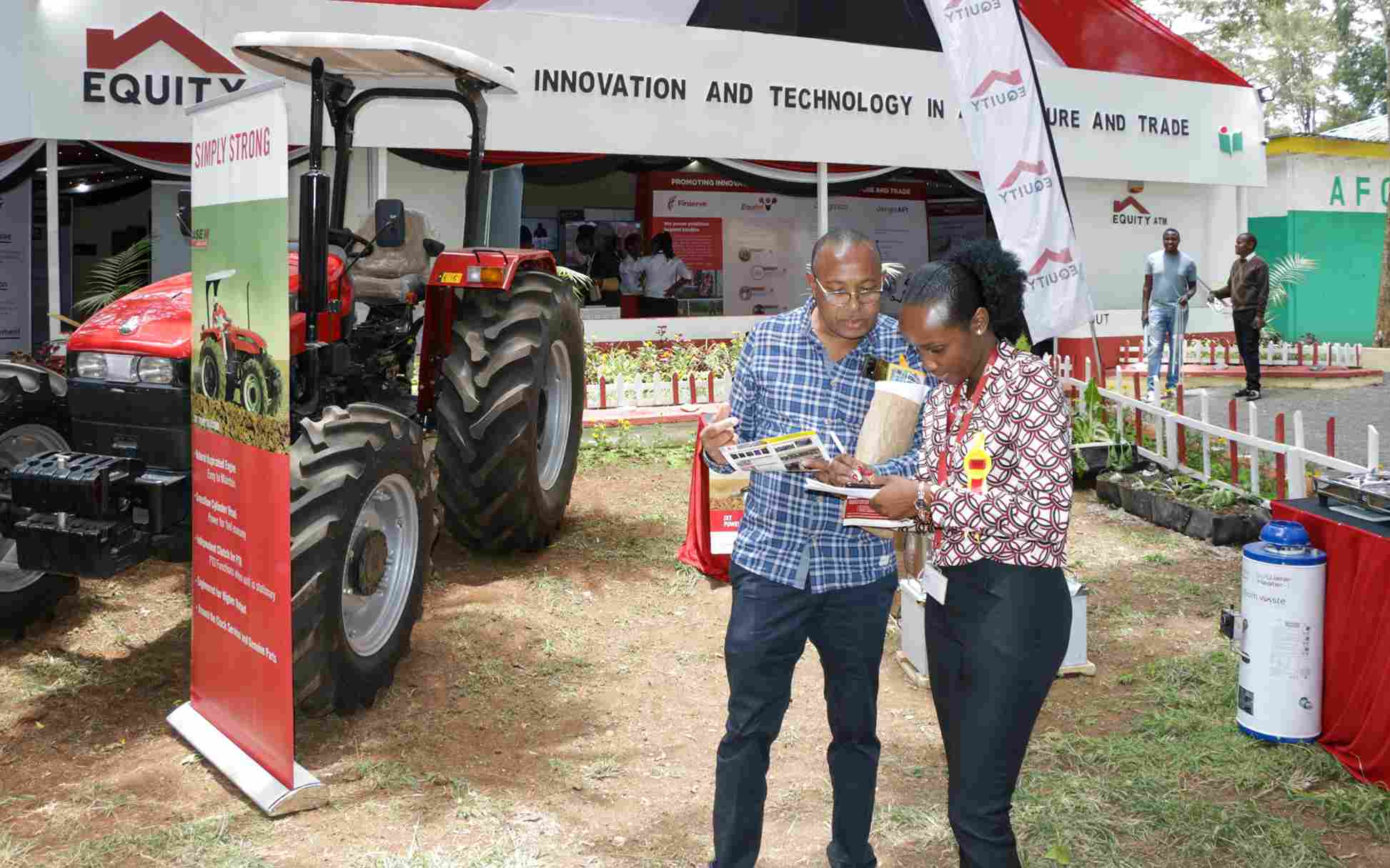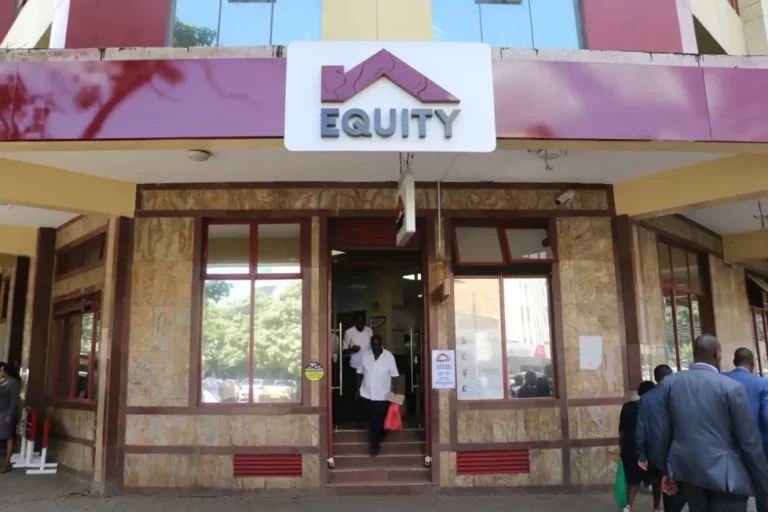Equity Group launched a $6 billion stimulus package to support SMEs in six African countries as part of its Africa Recovery and Resilience Plan.
Africa boasts immense economic opportunities fueled by natural resources, a young and growing population, and rising intra-continental trade. However, social and economic constraints persist, hindering full development.
Equity Group, a leading financial services provider in East and Central Africa, aims to catalyse the continent’s economic transformation. Its purpose is to empower people and transform lives through inclusive and sustainable economic growth.
The Group launched the Africa Recovery and Resilience Plan (AARP), a comprehensive strategy focusing on empowering East African value chains and connecting them to global markets.
“Equity Group’s execution of the Africa Recovery and Resilience Plan” will be underpinned by its social and economic engines that capacity value chains and provide holistic financial solutions to productive ecosystems,” Part of the plan reads.
The Plan has a three-pronged approach
One is boosting productivity by enhancing the capabilities of raw material producers and integrating them with African manufacturing sectors.
Two, connecting to global markets by connecting primary and secondary sectors to global supply chains and capital markets.
Third is through social and economic engines, where the group leverages them to strengthen value chains and provide holistic financial solutions to productive ecosystems.

Six Pillars of the Africa Recovery and Resilience Plan
The ARRP has six strategic pillars: food and agriculture, extractives, manufacturing and logistics, trade and investment, Micro, Small, and Medium Enterprises (MSMEs), Social and environmental transformation, and technology-enabled ecosystems.
Under food and agriculture, the AARP aims to empower small-scale farmers and agribusinesses. Equity Group’s achievements include supporting 3.8 million farmers and 292,362 agribusinesses through training and financing programs.
Extractives, Manufacturing, and Logistics aim to boost regional production and value chains.
Equity Group aims to promote intra-African trade through trade and investment. The Group’s 90% growth in gross trade finance income and support for the AfCFTA exemplify its commitment to this pillar.
In addition, the plan prioritises empowering micro, small, and medium enterprises (MSMEs), which is reflected in the group’s disbursement of Kshs. 259.3 billion to MSMEs under the Young Africa Works Program and financial training, reaching 459,537 MSMEs. The pillar stimulates job creation and economic growth for individuals and MSMEs through financial literacy, entrepreneurship training, business development services and digital literacy.
The Social and Environmental Transformation pillar addresses social needs and promotes sustainability. EGH’s financial education for 2.4 million women and youth, healthcare initiatives through Equity Afia, and support for 55,583 secondary school scholars demonstrate their social impact.
Finally, the Technology-Enabled Ecosystems pillar focuses on leveraging technology to improve financial inclusion and access to services. EGH’s extensive digital platforms are positioned to play a role here.
“The Technology Group enables the business to transform its delivery channels on a technology platform through digitisation. MSME and retail digital loan repayments are at 98% and 96%, respectively, on disbursement value of Kshs.284.6 billion and a 6.2 million disbursement count,” according to the group’s 2023 full-year performance.
“Digitization is increasingly making the Group business online, transforming the model from “where you go to what you do on devices and compressing time and geography whatever time, wherever.”
AARP 2030 Targets
The Plan has set ambitious goals for 2030; for instance, it aims to have 100 million online businesses, and consumers will be brought into the financial fold.
Moreover, it eyes 5 million borrowing businesses that will drive value chain expansion and employment, creating 50 million jobs (25 million direct and 25 million indirect).
The group aims to increase its lending capacity by allocating 2% of the region’s GDP in additional loans, with a focus on agriculture (30%), manufacturing (15%), and MSMEs (65%).
“The plan was conceived with execution in mind and with no economic and financial assumptions, only targets,” the Group says.
For instance, according to its quarter three 2023 financial performance, the Group invested over USD 645 million in social investment programs, with its Wings to Fly and Elimu Program and its Equity Leaders Program taking up 46% and 32%, respectively, of the funds.
The ARRP also aims to create social and environmental impact through its Equity Group Foundation (EGF), which implements various education, health, agriculture, energy, and entrepreneurship programs.
One of the key components of the ARRP is Equity’s Marshall Plan, a $6 billion stimulus package to support small and medium enterprises (SMEs) in the agriculture, manufacturing, logistics, trade and investment, social and environmental sectors over the next five years.
The plan targets five million businesses and 25 million individual borrowers, prioritising women, youth, and persons with disabilities.
It further leverages Equity’s extensive branch network, digital platforms, and partnerships with local and international financial institutions to provide affordable and accessible credit, training, and market linkages to SMEs.
The plan also supports the implementation of the African Continental Free Trade Area (AfCFTA), which is expected to boost intra-African trade and integration.
For instance, Focus on Trade Finance, supporting the AfCFTA aspirations, saw gross trade finance income grow by 90%, per the Group’s 3rd Quarter 2023 results. Foreign exchange income grew by 56%, driven by a 24% growth in foreign remittances to Kshs. 309.1 billion, up from Kshs. 248.7 billion. This delivered essential forex inflows while raising remittance processing income by 19% from Kshs. 1.3 billion to Kshs 1.6 billion.
Another key component of the ARRP is Equity’s leadership program, a rigorous leadership development program for top-performing Kenyan students. ELP aims to create a community of transformative leaders who work together across borders and various sectors to drive sustainable economic growth and social progress in Africa.
The program offers scholarships, mentorship, internships, and career guidance to students from disadvantaged backgrounds who demonstrate academic excellence, leadership potential, and social commitment. The program also exposes the students to global best practices and opportunities through partnerships with renowned universities and organisations.
The ARRP was launched on March 7, 2022, in the presence of Rwandan President Paul Kagame and Equity Group CEO Dr. James Mwangi.
The plan is aligned with the African Union’s Agenda 2063, the United Nations’ Sustainable Development Goals, and the Paris Agreement on climate change.
Various partners, such as the International Finance Corporation, the African Development Bank, the European Investment Bank, the French Development Agency, and the Mastercard Foundation, also support it.
The plan is expected to create over 12 million jobs, impact over 100 million lives, and contribute to the economic recovery and resilience of the region in the aftermath of the COVID-19 pandemic.
Today, the Group has provided financial education for women and youth, benefiting 2.4 million clients, and financial training for entrepreneurs, reaching 459,537 MSMEs. It has also disbursed Kshs. 259.3 billion to 269,081 MSMEs under the `Young Africa Works Program’, in partnership with Mastercard Foundation, which offers a credit guarantee and risk-sharing facility.
In addition, the Group has supported 3.8 million small-scale farmers and 292,362 agri-businesses through capacity building and access to finance programs. The Group has also invested in education, health, and entrepreneurship through its foundation, Equity Group Foundation (EGF), which has sponsored 55,583 secondary school scholars, 18,735 university scholars, and 3,454 TVET scholars. The EGF has also established 89 medical facilities under the Equity Afia Medical Franchise, which have recorded 1.9 million cumulative patient visits.
“With clarity of the Africa Recovery and Resilience Plan, strong leadership and human capital, strategic positioning in one of the world’s fastest-growing regions, a diversified business model across banking, insurance, health, philanthropy, technology and its execution, risk management capabilities, resilience and strong buffers, Equity is uniquely positioned to deliver on a positive and promising focus to all its stakeholders,” Dr James Mwangi during the FY23 investor briefing.




